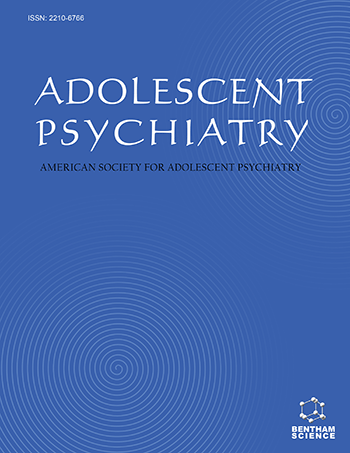Abstract
Background: Universal screening of adolescents for substance use and subsequent brief intervention has been recommended as a component of routine medical care by several professional societies, although the evidence base for such practice is less robust than that for adults.
Method: We review the literature and synthesize research findings on screening and brief intervention with adolescents.
Results: Several screening tools have been validated for use with this age group. While brief intervention with adolescents has not been studied as extensively as with adults, research to date suggests that interventions are promising and may be most effective if appropriately targeted based on screen results.
Conclusions: Outpatient mental health treatment is an opportunity to present highly relevant messages targeted at preventing or reducing substance use to children and adolescents who are at high risk of developing substance use disorders, and also to identify and intervene with patients who may already have a substance use disorder. Further evaluation to determine the efficacy of these brief interventions in the outpatient mental health setting is needed.
Keywords: Adolescents, substance abuse screening, brief intervention, motivational interviewing, risk.
Adolescent Psychiatry
Title:Screening and Brief Intervention for Adolescent Substance Use in Medical Settings
Volume: 3 Issue: 2
Author(s): Sharon Levy and Lydia A. Shrier
Affiliation:
Keywords: Adolescents, substance abuse screening, brief intervention, motivational interviewing, risk.
Abstract: Background: Universal screening of adolescents for substance use and subsequent brief intervention has been recommended as a component of routine medical care by several professional societies, although the evidence base for such practice is less robust than that for adults.
Method: We review the literature and synthesize research findings on screening and brief intervention with adolescents.
Results: Several screening tools have been validated for use with this age group. While brief intervention with adolescents has not been studied as extensively as with adults, research to date suggests that interventions are promising and may be most effective if appropriately targeted based on screen results.
Conclusions: Outpatient mental health treatment is an opportunity to present highly relevant messages targeted at preventing or reducing substance use to children and adolescents who are at high risk of developing substance use disorders, and also to identify and intervene with patients who may already have a substance use disorder. Further evaluation to determine the efficacy of these brief interventions in the outpatient mental health setting is needed.
Export Options
About this article
Cite this article as:
Levy Sharon and A. Shrier Lydia, Screening and Brief Intervention for Adolescent Substance Use in Medical Settings, Adolescent Psychiatry 2013; 3 (2) . https://dx.doi.org/10.2174/2210676611303020007
| DOI https://dx.doi.org/10.2174/2210676611303020007 |
Print ISSN 2210-6766 |
| Publisher Name Bentham Science Publisher |
Online ISSN 2210-6774 |
 19
19
- Author Guidelines
- Graphical Abstracts
- Fabricating and Stating False Information
- Research Misconduct
- Post Publication Discussions and Corrections
- Publishing Ethics and Rectitude
- Increase Visibility of Your Article
- Archiving Policies
- Peer Review Workflow
- Order Your Article Before Print
- Promote Your Article
- Manuscript Transfer Facility
- Editorial Policies
- Allegations from Whistleblowers
Related Articles
-
Self-inflicted Bilateral Ocular Perforation in an Adolescent Patient with Major Depressive Disorder and Borderline Personality Traits
Adolescent Psychiatry A Psychiatric Perspective on Narratives of Self-Reflection in Resilient Adolescents
Adolescent Psychiatry Norwegian Children and Adolescents with ADHD - A Retrospective Clinical Study: Subtypes and Comorbid Conditions and Aspects of Cognitive Performance and Social Skills
Adolescent Psychiatry Commentary: Anonymous Encounters: Alcoholics Anonymous, Al-Anon, and Overeaters Anonymous
Adolescent Psychiatry Cyberbullying and Depression Among Adolescents in an Acute Inpatient Psychiatric Hospital
Adolescent Psychiatry “Reports of an Addiction”: Therapeutic Intervention with a Young Adult with Cannabis Dependence
Adolescent Psychiatry Disaster Psychiatry: Good Intentions Seeking Science and Sustainability
Adolescent Psychiatry Mother-Daughter Reunification in Adolescence: Another Trauma, Another Chance
Adolescent Psychiatry Gender Differences in the Suicide Attempts of Adolescents in Emergency Departments: Focusing on Individuals with Autism Spectrum Disorder
Adolescent Psychiatry The Impact of Adverse Childhood Experiences (ACEs) on Suicidal Ideation and Suicide Attempts in an Inpatient Adolescent Sample
Adolescent Psychiatry Editorial: Adolescent Psychiatry — Past, Present, and Future
Adolescent Psychiatry Psychological Distress Among Youth Probationers: Using Social Determinants of Health to Assess Suicidal Thoughts and Behaviors
Adolescent Psychiatry Trauma Interventions using Mindfulness Based Extinction and Reconsolidation (TIMBER<sup>©</sup>) as Monotherapy for Chronic PTSD: A Pilot Study
Adolescent Psychiatry The Association between Migratory Factors and Emotional and Behavioural Symptoms in Very Recently Arrived Immigrant and Refugee Adolescents
Adolescent Psychiatry Psychotherapy, Suicide and Depression, Body Dysmorphic Disorder, Aggression, an Unusual Case, and the Case for Harm Reduction in Treating Adolescent Substance Abuse
Adolescent Psychiatry In-person vs. eHealth Mindfulness-based Intervention for Adolescents with Chronic Illnesses: A Pilot Randomized Trial
Adolescent Psychiatry SYMPOSIA
Adolescent Psychiatry A Pilot Study of Hippocampal Activity During a Verbal Memory Task in Depressed Young Adults
Adolescent Psychiatry Editorial [Hot Topic: Eating Disorders in Adolescents (Guest Editors: Julie Lesser and Kathleen Kara Fitzpatrick)]
Adolescent Psychiatry Adolescent Medication Misuse: Results from the MUSC Inventory of Medication Experiences (MIME)
Adolescent Psychiatry

























